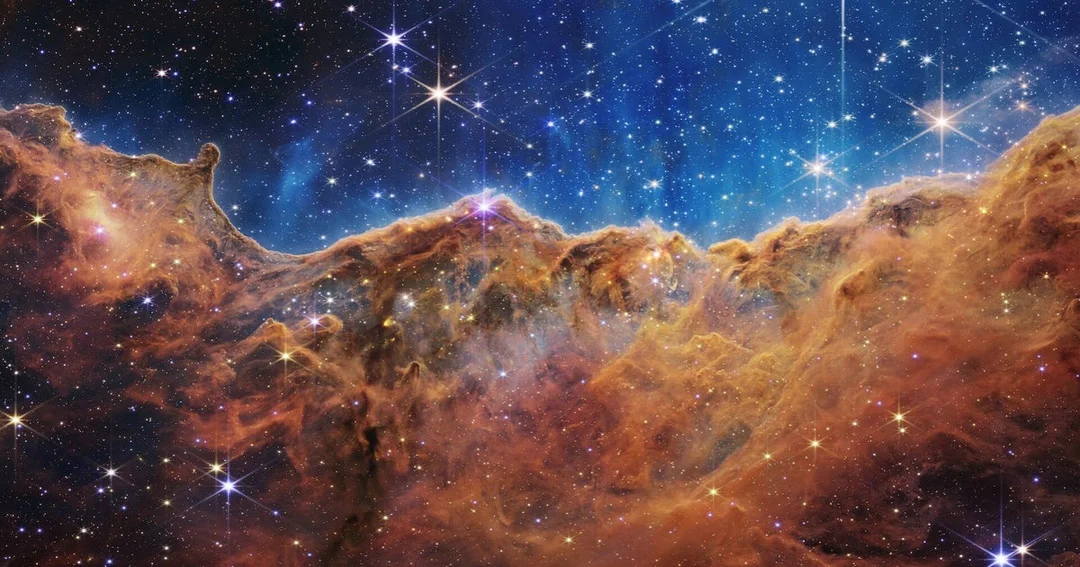
Scientists Sharpen Focus on Universe’s End: Is It Coming Sooner Than We Thought?
The ultimate fate of the universe has long captivated scientists, and a new study is stirring up the cosmic pot. Forget what you thought you knew about the longevity of everything – new research suggests the universe might be facing its demise much sooner than expected. But before you panic, we're talking about timescales that dwarf our current understanding of time itself.
A team of researchers from Radboud University in the Netherlands, led by Heino Falcke, Michael Wondrak, and Walter van Suijlekom, has re-evaluated the lifespan of celestial objects, challenging previous estimates. Their findings, published in the Journal of Cosmology and Astroparticle Physics, suggest that the universe's "final glow" could arrive much earlier than initially believed.
Challenging Hawking's Legacy
Inspired by Stephen Hawking's groundbreaking theory of Hawking radiation – the slow evaporation of black holes – the team extended this concept to other dense cosmic bodies, like neutron stars and white dwarfs. While Hawking's work focused on black holes, the Radboud team discovered that gravitational curvature radiation could cause even seemingly durable objects to decay over time.
"We did the calculations dead-seriously and with a wink," said Falcke, highlighting the blend of rigorous science and imaginative exploration that fueled their research.
A Cosmic Countdown: White Dwarfs and Neutron Stars
The implications are staggering. Previous estimates suggested white dwarfs could last for an astounding 10^1100 years. The new analysis dramatically shrinks that lifespan to just 10^78 years. While still incomprehensibly long, it’s a significant revision. What's even more surprising is that neutron stars and black holes might decay at roughly the same rate – around 10^67 years. According to Wondrak, the key difference lies in the surface, "Black holes have no surface," he explains."They reabsorb some of their own radiation, which slows down the process."
In contrast, neutron stars have a surface and emit blackbody radiation, slowly losing mass as they dissipate energy. 
Beyond Stars: A Universal Decay
The research extends beyond individual stars; it suggests a universal principle at play. Decay time is intrinsically linked to density, not just mass or size. In a playful exploration of their models, the team even calculated the evaporation time for the Moon and a human being – both around 10^90 years.
“There are other processes that may cause humans and the Moon to disappear faster,” the researchers noted. The calculation demonstrates the impact of density on decay as being significantly similar.
A Symphony of Disciplines
This groundbreaking work isn't confined to a single field. It's a blend of astrophysics, quantum physics, and mathematics. Professor van Suijlekom emphasized the importance of interdisciplinary collaboration: “By asking these kinds of questions and looking at extreme cases, we want to better understand the theory, and perhaps one day, we unravel the mystery of Hawking radiation.” The findings can be found in the journal arXiv.
The Big Crunch? Dark Energy's Role
The timeline implications are further bolstered by new research on dark energy, a mysterious force making up almost 70% of the universe by the findings. If the dark energy has a constant speed, like Einstein said, the universe will keep expanding into a cold death. Others are researching that the dark energy decreases with time. If it does reach a point where it slows expansion, it would cause a Big Crunch on the universe, causing everything to collapse in on itself.
If gravitational decay can happen without an event horizon, it changes how scientists think about the fabric of space and time. It also raises questions about energy conservation and thermodynamics in the distant future.
While these cosmic countdowns span unimaginable timescales, they help us grasp where the universe is headed. Stars, moons, even people—all may have an expiration date written not just in atoms, but in gravity itself.
So, what do you think about these revised estimates for the universe's lifespan? Are you surprised by the potential role of gravitational decay? Share your thoughts and theories in the comments below!